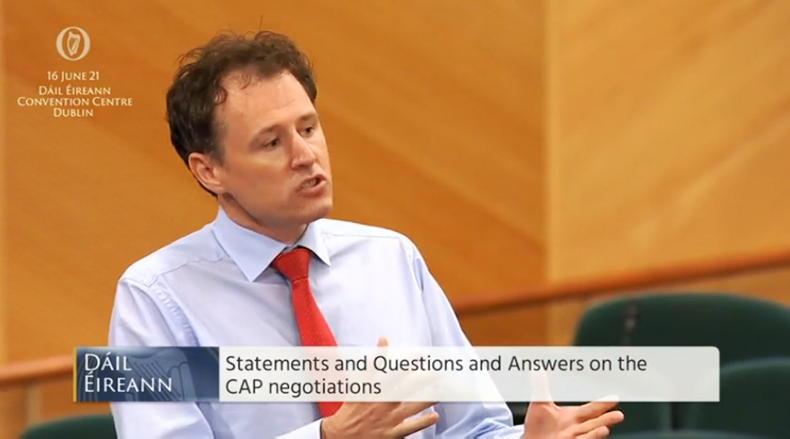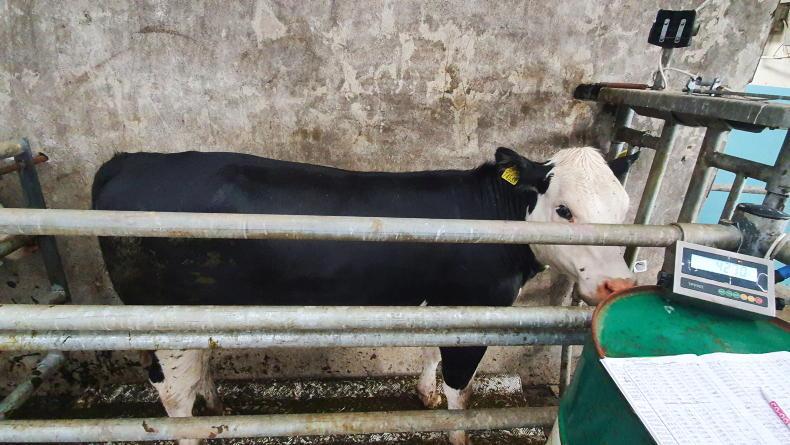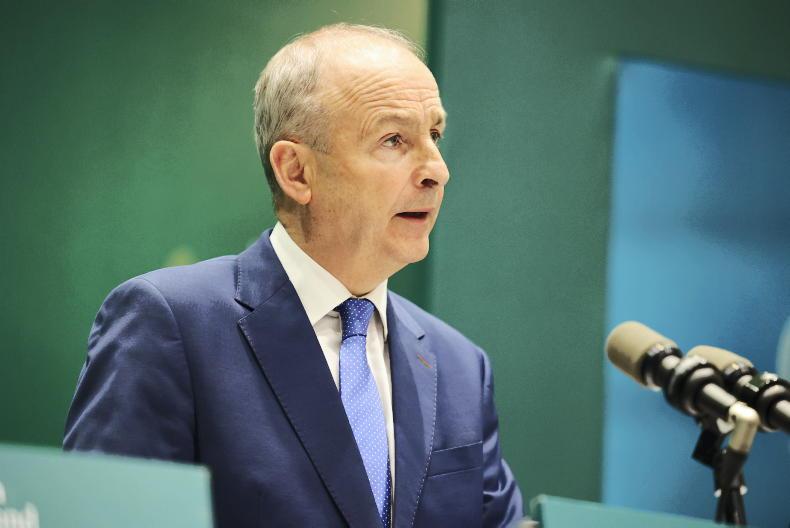Anomalies in the maps produced for the Nitrates Derogation review undermined farmers’ faith in the controversial process, the Minister for Agriculture Charlie McConalogue has claimed.
These maps set out where the derogation limits for organic N were to be retained at 250kgs/ha or reduced to 220kgs/ha.
The minister also questioned the scientific justification for the inclusion of certain areas in the region where the lower derogation limits were to apply, and the reasoning for excluding other areas.
In a letter to the European Commissioner for the Environment Virginijus Sinkevicius, which has been seen by the Irish Farmers Journal, Minister McConalogue sought to delay the cuts to the derogation limits.
The minister said farmers’ reservations regarding the derogation changes had been compounded by the maps produced to support the review.
Anomalies
“These concerns are exacerbated by a number of anomalies in the mapping provided in line with Article 12 of the Implementing Decision, which will inform the reduction in organic nitrogen allowances,” Minister McConalogue told Commissioner Sinkevicius.
“For example, the map of the areas that failed the Article 12 two-year water quality review includes some areas with very low nitrate levels in water,” he explained.
“It also includes certain areas where agriculture is not deemed to be a significant pressure on water quality, according to research conducted by Ireland’s Environmental Protection Agency,” Minister McConalogue pointed out.
“On the other hand, the map excludes some areas with higher mean nitrate concentrations, where nitrate levels are a pressure on water quality,” he added.
In relation to phosphorous levels, the minister claimed that water quality problems were primarily caused by what he referred to as “point of source pollution”.
Phosphorus
The minister also questioned the review’s methodology regarding phosphorous.
“The ‘areas draining to’ requirement is inappropriate for areas that have failed the two-year water quality review, due to a need for phosphorous reduction measures,” Minister McConalogue maintained.
“This is particularly relevant when one looks at the very low overall stocking rate that exists in certain areas that have failed the two-year water quality review,” he said.










SHARING OPTIONS